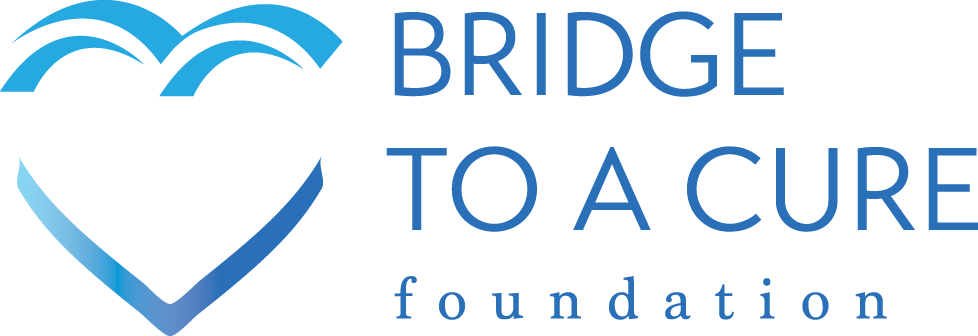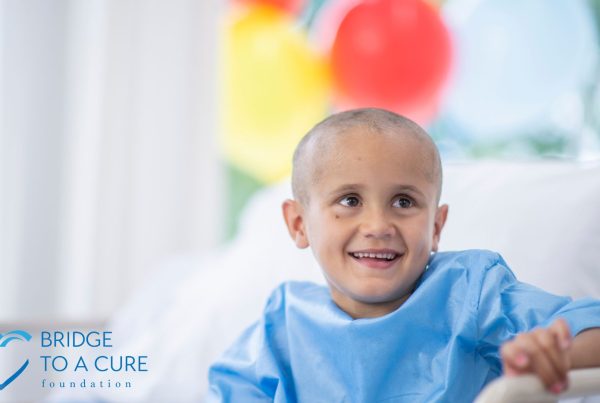Building a robust national database is crucial to energize breakthroughs
against cancer and other childhood afflictions
Last month President Donald Trump surprised advocates for cancer patients by proposing to spend $500 million over 10 years on pediatric cancer research, starting in 2020 with a focus on sharing patient data. Bridge to a Cure wants to make sure that happens.
In his State of the Union speech, Trump honored a “very brave” guest sitting with First Lady Melania Trump: 10-year-old brain cancer survivor Grace Eline, who raised money for pediatric cancer research before developing the disease herself.
Grace is not alone. In America, 30 million children struggle every day with the challenges of a debilitating chronic disease or disorder. These include 13 million children battling a serious disease plus 17 million struggling with psychological disorders.
One of those children might be your own child, grandchild, niece or nephew. Yet as anyone who has stood beside one of these helpless children knows, the medical results they are counting on are often disappointing. We are not seeing the breakthroughs we need to help these 30 million children. We shouldn’t be surprised. Without a robust national database, the information researchers need is limited and insufficient to deliver the breakthroughs millions of children are counting on.
The President pointed out that “many childhood cancers have not seen new therapies in decades.” Boosting funding by $50 million a year would equal an 11% increase over the $462 million that the National Cancer Institute (NCI) and other National Institutes of Health (NIH) institutes expect to spend this year on pediatric cancer, according to Science Magazine.
Sharing patient data will be a major initial thrust of the new funding according to NCI Director Ned Sharpless. Adding $50 million in the coming fiscal year “would afford a unique opportunity to leverage the power of existing data and develop new knowledge that will drive discovery and development of new approaches to treat childhood cancers,” the agency says.
Some critics worry that focusing on data will come at the expense of other parts of NCI’s budget. But Sharpless says he is “100% convinced that the area of artificial intelligence and machine learning will have a huge impact on cancer research and cancer care.”
Sharpless is former director of the Lineberger Comprehensive Cancer Center at the University of North Carolina (UNC) in Chapel Hill. There his team used IBM’s Watson supercomputer to organize data on new therapies to help determine what drug to give patients based on tumor mutations. He compared the Big Data approach to “a million paralegals that are really, really fast.”
“Having med students reading charts and abstracting them is just too slow, and so these tools that use natural language processing to extract the records are very useful,” he said. “That’s going to get us a million patients that are clinically annotated and aggregated with genomic data sets. That will allow us to do the kinds of things that we really need to do.”
About a year ago, I met with Sharpless for a couple of hours to discuss our mission at Bridge to a Cure Foundation. He was very supportive of our focus, and we support his proposal to boost patient data as a first step toward building a robust database for pediatric diseases and disorders.
We need to establish a process and framework to capture and analyze hundreds of millions of pages of research, medical files, information on traditional and alternative treatments, and other data in one place. This must be our primary thrust if we are to find effective treatments and cures for diseases that strike both children and adults.
Surprisingly, our nation does not yet have a robust database for pediatric disease and disorders. This is one of the main reasons we started Bridge to a Cure. Our mission is to increase the pace and success of pediatric research by unlocking resources already available today.
It will be up to Congress to decide which of President Trump’s priorities to fund in the federal budget. It is critical that funding for increased research into pediatric disease remains a budget priority with sharing data the primary focus.
Building a robust national database will require us to share ideas, research, and medical files. It’s the only solution that can tie together all that we know about diseases and disorders, while illuminating knowledge gaps we still need to fill. Building such a database on pediatric cancers can serve as a model toward using this approach to fight all pediatric diseases and disorders.
Together, we can make a difference in the lives of the 30 million children struggling every day with the challenges of debilitating chronic diseases and disorders. We need to give these kids hope and the will to chase their dreams.
The resources to build a robust national database are available today. With your help and support, we can make this happen. Join the crusade to improve pediatric research at www.BridgeToACure.org by pledging your support. While donations are appreciated, you can also make a difference simply by sharing your name here.
Help spread the word! Posts you may copy and paste into your social media accounts:
We support the #PresidentTrump proposal to spend $500 million on #pediatriccancer research. #childhoodcancer #childhoodcancerawareness #cancersucks
We must build a robust database for pediatric diseases and disorders. #pediatricresearch #childhoodcancerawareness
We are not seeing the #childhoodcancer research breakthroughs we need to help 30 million children with pediatric diseases and disorders. #cancersucks
Surprisingly, the #UnitedStates doesn’t have a robust database for pediatric disease and disorders. #pediatricresearch #pediatriccancer
Building a robust national database for pediatric disease and disorders requires sharing ideas, research and medical files. #pediatricresearch #pediatriccancer
Join the crusade to improve #pediatricresearch at www.bridgetoacure.org.






